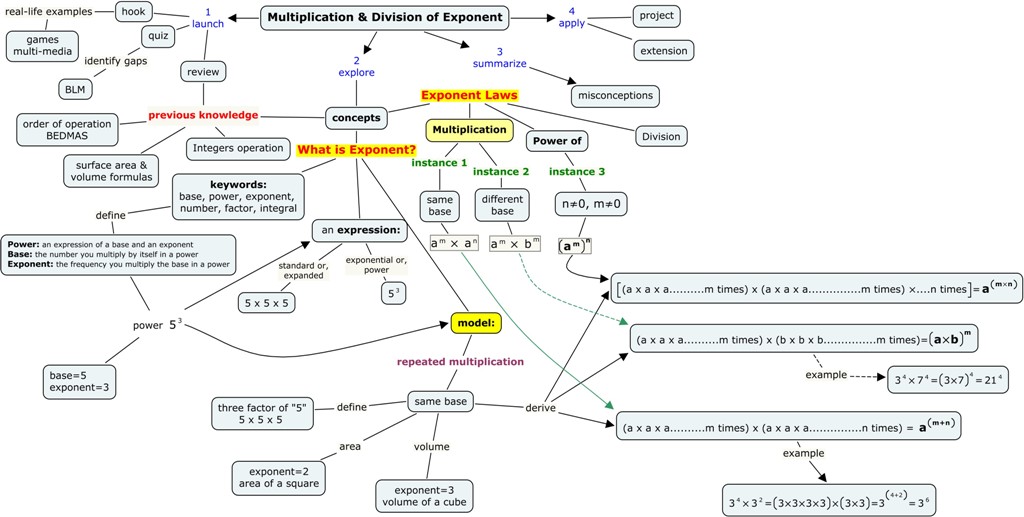Multiplying base and exponent
Incorrect: 23 ≠ 2 x 3
Correct: 23 = 2 x 2 x 2 = 8
Exponents "distribute"
Incorrect: (2 + 4)3 ≠ 23 + 43
Correct: (2 + 4)3 = 63 = 6 x 6 x 6 =216
Anything to the power of "zero" is? ...
Incorrect: 70 ≠ 0
Correct: 70 = 1
Proof: 70 = 7(m-m) = 7m ÷ 7m = 1 (anything divided by itself is just "1")
Scientific Notation! A negative on an exponent and a negative on a number ... uhh? Are they the same?
Exponents "distribute"
Incorrect: (2 + 4)3 ≠ 23 + 43
Correct: (2 + 4)3 = 63 = 6 x 6 x 6 =216
Anything to the power of "zero" is? ...
Incorrect: 70 ≠ 0
Correct: 70 = 1
Proof: 70 = 7(m-m) = 7m ÷ 7m = 1 (anything divided by itself is just "1")
Scientific Notation! A negative on an exponent and a negative on a number ... uhh? Are they the same?
Correct: 0.00036 = 3.6 × 10-4
-0.00036 = -3.6 × 10-4
36,000 = 3.6 × 104
-36,000 = -3.6 × 104
A negative on an exponent and a negative on a number are equal
Incorrect: -42 ≠ 16
Correct: -42 = -16
Correct: -42 = -(4)2 = -16
Correct: (-4)2 = 16
How to fix this?
(3 x 2)² = 3² x 2² then (3 + 2)² = 3² + 2², or the exponent rules when multiplying numbers with exponents is applicable to all operations.
Perhaps further examples can be used to illustrate this point:
i.e. (pq)³ = (pq) x (pq) x (pq) = (p x p x p) x (q x q x q) = p³ x q³
(p + q)³ = (p + q) x (p + q) x (p + q) = use of distributive property to solve.
i.e. (3 x 4)³ = (3 x 4) x (3 x 4) x (3 x 4) = (3 x 3 x 3) x (4 x 4 x 4) = 3³ x 4³, which is same as 12³ but
i.e. (3 + 4)³ = (3 + 4) x (3 + 4) x (3 +4) = 7³, which is not the same as 3³ + 4³
.jpg)